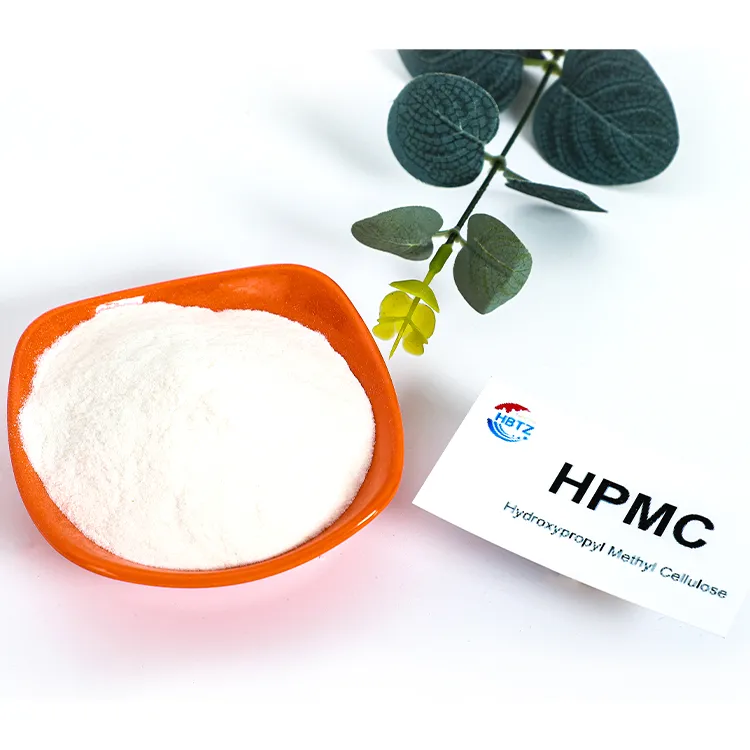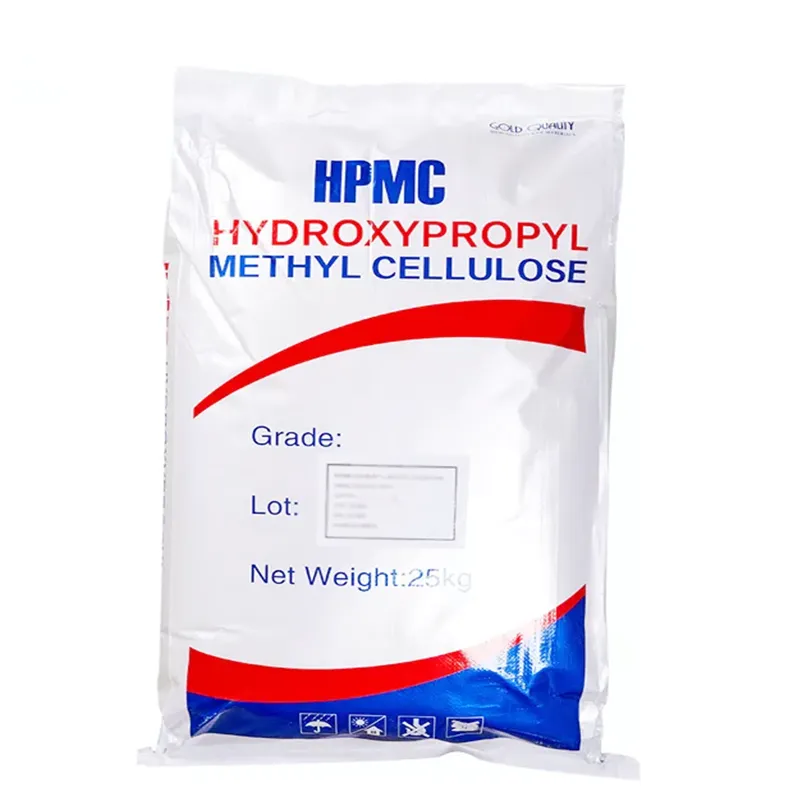
HPMC: High-Performance Thickener & Stabilizer | Hebei Tangzhi
Hydroxypropyl Methyl Cellulose (HPMC), also known as CAS 9004-65-3, is a high-performance multifunctional thickener and stabilizer widely used in construction, medicine, food, and daily chemicals. This article provides an in-depth analysis of HPMC's features, advantages, technical specifications, application scenarios, and the background of its leading manufacturer, Hebei Tangzhi Technology Co., Ltd..
What is Hydroxypropyl Methyl Cellulose (HPMC)?
HPMC is a non-ionic cellulose ether derived from natural polymers like refined cotton through chemical processes. It exists in two types: hot-dissolving and instant-dissolving. The hot-dissolving type is ideal for dry powders, internal/external wall putty, and mortar, while the instant-dissolving type is used in construction adhesives, coatings, and liquid products. HPMC is odorless, tasteless, and nontoxic, making it safe for diverse applications.


Key Features of HPMC
- Excellent Thickening Effect: Enhances viscosity in surfactants and other formulations.
- Superior Water Retention: Prevents paste from drying too quickly, reducing cracking.
- Strong Bonding Properties: Improves adhesion in construction materials and coatings.
- Thermal Stability: Maintains performance under varying temperature conditions.
- Non-Toxic and Safe: Suitable for pharmaceutical, food, and cosmetic applications.
Technical Specifications
| Item | Range |
|---|---|
| Hydroxypropyl Content | 7-12% |
| Methoxy Content | 22-28% |
| Ash | ≤5% |
| Viscosity | 20,000-200,000 mPa·s |
| pH | 5-8 |
| Moisture | 5±2% |
| Gel Temperature | 60-75°C |
| Density | 350-450 g/cm³ |
Applications of HPMC
1. HPMC for Gypsum
Improves the workability of plaster, enhances anti-vertical flow ability, and ensures uniform surface coating. Its high water retention prolongs mortar working time and boosts mechanical strength during solidification.
2. HPMC for Adhesive
Facilitates easy mixing of dry ingredients, prevents lumps, and enhances adhesion. It improves brick pasting efficiency and provides high skid resistance.
3. HPMC for Mortar
Acts as a viscosity modifier and anti-precipitation aid. It enhances fluidity, pumpability, and reduces cracking by controlling water retention.
4. HPMC for Cement Mortar
Improves homogeneity and insulation mortar coating. Its special water retention is ideal for high water absorption bricks.
5. HPMC for Wall Putty
Enhances water retention, reduces shrinkage and cracking, and improves surface quality. It ensures a smooth finish during construction.
6. HPMC for Exterior Wall Insulation Mortar
Boosts adhesion to walls, improves lubricity, and eliminates micro-cracks for a smooth, durable coating.
Manufacturing Process of HPMC
- Raw Material Preparation: Methyl cellulose, propylene oxide, and catalysts are used. Quality control ensures adherence to production standards.
- Reaction Process: Methyl cellulose is mixed with a catalyst and dissolved at a specific temperature. Propylene oxide is added, and the reaction occurs under controlled temperature and pressure.
- Refining Process: Crude HPMC is centrifuged, washed, and dried to remove impurities and unreacted materials.
- Packaging and Storage: Refined HPMC is packed in multi-layer paper bags (25 kg net weight) and stored in cool, dry places away from sunlight.
About Hebei Tangzhi Technology Co., Ltd.
Based in Hebei, China, Hebei Tangzhi Technology Co., Ltd. is a leading manufacturer of HPMC and related products. With a 140,000 m² factory and 90,000 m² dedicated building area, the company produces over 40,000 tons annually. Its strategic location near Beijing, Tianjin, and Qingdao ensures efficient logistics. The company offers competitive HPMC powder prices and serves industries globally.
HPMC vs. HEC: Key Differences
Hydroxyethylcellulose (HEC) and HPMC are both cellulose derivatives but differ in applications. HEC excels in film formation and clarity, making it ideal for cosmetics and pharmaceuticals. HPMC, however, offers better water retention and thermal stability, making it preferred in construction and adhesives.
HPMC FAQs
What are the types of HPMC?
- HPMC-M: Hot-melt type for high-temperature applications.
- HPMC-S: Instant-dissolving type for cold water applications.
- HPMC-E: Used in medicine and adhesives.
- HPMC-Y: For construction to improve mortar workability.
How is HPMC manufactured?
The process involves cellulose extraction, etherification with propylene oxide and methyl chloride, purification, and drying into a fine powder.
What are the functions of HPMC?
HPMC acts as a binder in pharmaceuticals, thickener in cosmetics, and water-retention agent in construction materials. It also enhances texture and stability in food products.
What is the difference between HPMC and MHEC?
HPMC contains hydroxypropyl and methyl groups, while MHEC has methyl and hydroxyethyl groups. HPMC is preferred for water retention, whereas MHEC excels in dispersion and stability in aqueous systems.
HPMC in Skincare
HPMC is used in skincare for its ability to form a smooth, non-greasy layer on the skin. It enhances product texture, retains moisture, and is suitable for sensitive skin due to its gentle, non-irritating properties.
Conclusion
Hydroxypropyl Methyl Cellulose (HPMC) is a versatile and essential material across multiple industries. Hebei Tangzhi Technology Co., Ltd. stands out as a reliable supplier, offering high-quality HPMC with competitive pricing and efficient logistics. Whether for construction, pharmaceuticals, or cosmetics, HPMC's unique properties make it an indispensable component.
Authoritative Citations
For further information on chemical standards and material properties, refer to the National Institute of Standards and Technology (NIST). NIST provides critical research and guidelines on polymer chemistry and material testing, ensuring the reliability of HPMC in industrial applications.
-
Reliable Powdered Cellulose Supplier: Quality, Sustainability & InnovationNewsNov.24,2025
-
Find Trusted Microfibrillated Cellulose Suppliers for Sustainable Industrial SolutionsNewsNov.24,2025
-
Leading Methocel Suppliers: Quality, Innovation & Sustainability in Methylcellulose SupplyNewsNov.23,2025
-
Reliable Hydroxyethylcellulose Suppliers for Industry & Sustainability | Tangzhi HPMCNewsNov.23,2025
-
Top Ethyl Cellulose Supplier – Quality, Sustainability, and Industrial SupportNewsNov.23,2025
-
Trusted CMC Powder Suppliers for Food, Pharma & Industrial Use | Tangzhi HPMCNewsNov.22,2025





















